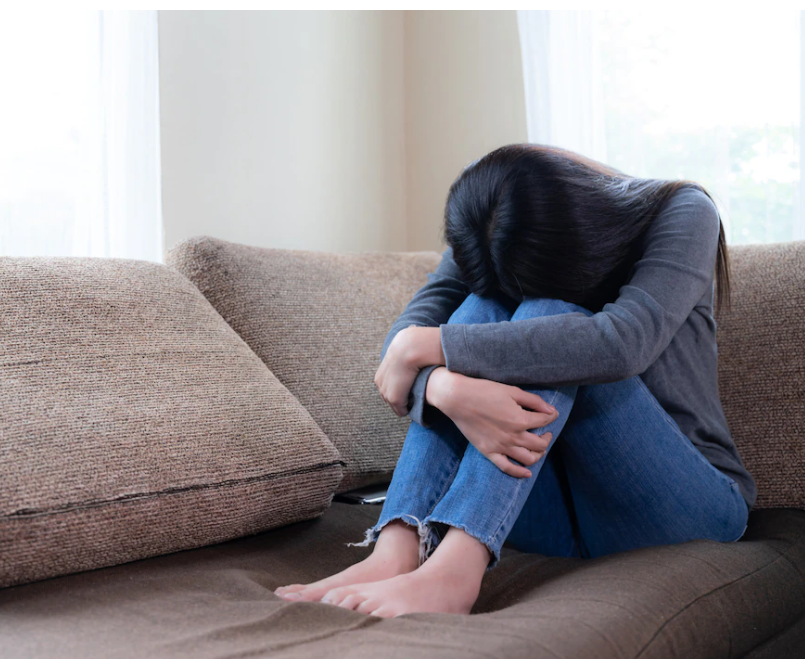Why Mental Health Is Important?
Discover why your mental health is so important to your overall health.

Selfpause Affirmation App
Download the app to get 1,000’s of affirmation meditations and everything you need to write, record and listen to your own.
It’s important to prioritize your mental health. Perhaps you’ve been having trouble coping with life lately. Perhaps you’ve been dealing with a mental health issue, such as depression, Bipolar disorder, or OCD. There are plenty of reasons why mental health is so important to your overall health.
Depression

Taking the time to understand depression and mental health is an important part of maintaining good physical health. A constant feeling of sadness can cause many problems, and depressed people have trouble functioning in their everyday lives. Depression symptoms can range from mild to severe, and can be triggered by many different things. Fortunately, treatment is available to help patients improve their quality of life.
The Substance Abuse and Mental Health Services Administration estimates that one in four people in the United States suffers from a mental health disorder. In addition, the National Center for Health Statistics reported that the number of suicides in the United States increased 35 percent between 1999 and 2018. Suicide is now the tenth leading cause of death in the United States, and depression increases one’s risk of suicide. In fact, 60 percent of people who die by suicide suffer from a mental health disorder. Despite these staggering statistics, many do not have the right knowledge about depression or mental health. In a recent survey of working-age adults in the United Kingdom, 61% of respondents indicated a poor understanding of what mental illness is and how it affects their life.
Psychotherapy is one of the most effective treatments for depression, and while it does not cure the condition, it can help manage its symptoms. Psychotherapy involves individual, family, and/or group sessions and can address a variety of issues. Group therapy brings together people who are experiencing similar symptoms and can help them find ways to cope. Treatment may take several weeks or months, but significant improvements can be seen after about 10 to 15 sessions.
Bipolar disorder

If you think that you may be suffering from bipolar disorder, you should seek medical advice and treatment. Treatment for bipolar disorder usually consists of talk therapy and medicines. Therapy can help you cope with the symptoms of the condition, as well as reduce the frequency of mood episodes. It also involves helping you understand your thoughts and behaviors so that you can change them for the better. Psychotherapy may also include support groups and education sessions to help you learn and implement coping skills.
Getting the proper treatment for bipolar disorder can help you lead a fulfilling and productive life. It is important to make sure you get regular medical checkups to rule out other illnesses that may be causing mood changes. If bipolar disorder is left untreated, it can lead to damaged relationships, poor school and job performance, and even suicidal thoughts. The good news is that there are many treatments for bipolar disorder that work well.
Treatment for bipolar disorder involves learning to cope with mood swings and learn how to manage negative triggers and stress. Therapy also involves educating family members about the disorder. Family therapy can be very helpful, especially after treatment has begun.
OCD
To treat OCD, the first step is to find out the trigger. This is important as avoiding the source of the obsession could make it worse. Therefore, exposure and response prevention (ERP) therapy can be a useful approach. This method teaches the sufferer to control his or her urges. It is the mainstay of professional therapy for people suffering from OCD.
OCD usually starts during childhood or adolescence. It is very rare for someone to develop the disorder after the age of 30 years. Due to lack of awareness and prejudice, OCD often goes undiagnosed. One of the most common forms of OCD is called perinatal OCD, which involves recurring thoughts about harming the unborn child.
Treatment for OCD aims to break the vicious cycle. It involves the sufferer facing a series of negative emotions, including shame and embarrassment. These feelings can affect the sufferer’s ability to socialise and maintain relationships. However, with the help of therapy, sufferers often get lasting relief from their condition and learn new ways of thinking.
In addition to psychotherapy, medication is one treatment option for the disorder. While this treatment option is not for everyone, it can reduce the intensity of symptoms in many patients. Medications called serotonin reuptake inhibitors (SSRIs) are a standard treatment for OCD. These drugs are effective for mild to moderate symptoms, although the full effect may take between six to 12 weeks.
Paranoid personality disorder

When a person suffers from paranoid personality disorder, they may be hesitant to share personal information with others for fear that it might be used against them. They also may doubt the loyalty of friends and even their partners. They may question everything they do and say, and may even blame their partner for their mistakes. Their distrust of others can be a huge burden to live with. Because of this, they may isolate themselves from family and friends, or even abandon old social relationships.
Paranoia may be caused by a biochemical imbalance in the brain. This condition can also be caused by traumatic experiences in a person’s childhood, which can lead to altered thinking patterns. The brain’s chemicals may also be influenced by drugs, which can change its chemistry.
People with paranoid personality disorder should seek treatment to overcome this disorder. It is important to understand that there are many treatment options for people with paranoid personality disorder. Therapy may involve the use of medication, or it may involve therapy with a therapist. It is important to seek out a therapist with the appropriate background and experience.
PTSD
PTSD is a common condition that occurs following an traumatic event. It is a psychological disorder that results from the conflict between pre and post-trauma beliefs. People who suffer from PTSD often suffer from other mental health conditions as well. As many as 78% of people diagnosed with PTSD have other mental health problems.
The symptoms of PTSD can cause people to feel stuck and unable to function in their daily lives. However, there are ways to cope with PTSD and make life better. The first step is to learn coping mechanisms. This may include learning new methods for preventing nightmares and reducing the pain of painful memories.
Therapy is important for anyone suffering from PTSD. It is important to start treatment as early as possible after a traumatic experience. This will help prevent the symptoms from worsening or progressing to PTSD. Moreover, a therapist can help you get over your trauma by giving you the tools to handle it. A mental health professional can also provide you with evidence-based therapy and medication.
In most cases, a GP will carry out an initial assessment of PTSD and refer you to a mental health specialist if the symptoms are severe. If the symptoms are mild, a watchful waiting approach may be appropriate. If the condition is treated early enough, the symptoms will diminish over time, and in some cases will go away by themselves.
Social issues

Mental illness has become a serious social issue, and a large percentage of people suffer from it without seeking treatment. This is problematic for many reasons, including the strain it places on society, the costs associated with treatment, and the stress that it causes. This essay explores the relationship between mental illness and social issues and discusses treatment options for those who suffer from mental illness.
Social issues affect many aspects of people’s lives, from their physical and mental health to their relationships with their families and their society. Inequality is a significant contributor to poor mental health and is a major cause of depression and anxiety. Working poverty, or poverty with poor living standards, can also lead to mental disorders.
The level of mental illness is higher for women and people who live in low-income countries. Those who are displaced by war or persecution are five times as likely to experience a mental health crisis than those who have lived in a stable country. Low levels of education, unemployment, and discrimination can also affect people’s mental well-being.
Treatment options
If you suffer from a mental health condition, you may have several treatment options available to you. Some of them may cure you, while others will help you to manage your symptoms. Medications are a common choice to treat mental health disorders, especially those involving depression. They can help restore a person’s chemical balance in the brain. Anti-anxiety medications, for example, help patients overcome social anxiety and frequent panic attacks.
Behavioral therapy is a form of psychotherapy that involves interacting with other people. This therapy helps a person learn healthy ways to express their emotions and improve their relationships. It is used in treating traumatic stress disorders and depression. Behavioral therapy may also be used as an adjunct treatment for people with severe mental health problems.
Residential treatment is another option for treating mental health issues. It involves living in a facility that offers structured, 24 hour treatment sessions. It is more affordable than inpatient care, and offers more flexibility. It can help a person learn new coping skills without the distractions of everyday life.
Our Top FAQ's
Not prioritizing mental health can have serious consequences, including a decreased ability to manage stress and cope with life’s challenges, difficulty forming and maintaining relationships, decreased productivity and difficulty performing daily tasks, and an increased risk of developing physical health problems. Additionally, ignoring or not addressing mental health issues can lead to more serious conditions such as depression, anxiety, and substance abuse.
Poor mental health can have a significant impact on physical health and overall well-being. For example, mental health conditions such as depression and anxiety can lead to physical symptoms such as headaches, stomach problems, and difficulty sleeping. These conditions can also weaken the immune system, making individuals more susceptible to illness. Poor mental health can also lead to unhealthy behaviors such as substance abuse and neglecting self-care, which can further impact physical health.
Some common mental health conditions include depression, anxiety, bipolar disorder, and schizophrenia. These conditions can be treated through a combination of approaches such as therapy, medication, and lifestyle changes. Therapy, or psychological counseling, can help individuals better understand and work through their thoughts and emotions. Medication, such as antidepressants or antipsychotics, can help manage specific symptoms. Lifestyle changes, such as getting regular exercise, eating a healthy diet, and getting enough sleep, can also help improve mental health.
There are many ways individuals can prioritize their mental health on a daily basis, including:
- Engaging in regular physical activity, such as going for a walk or jog, or participating in a sport or exercise class
- Getting enough sleep and practicing good sleep hygiene, such as avoiding screens before bedtime and creating a relaxing bedtime routine
- Eating a healthy, balanced diet and staying hydrated
- Practicing relaxation techniques, such as deep breathing or meditation
- Setting boundaries and taking time for self-care, such as taking breaks from work and engaging in activities that bring joy and relaxation
- Seeking support from friends, family, or a mental health professional when needed
There are many ways society can support and promote better mental health for all individuals, including:
- Providing access to mental health services, such as therapy and medication, through public health programs or private insurance
- Implementing policies that promote work-life balance and prevent burnout, such as paid time off and flexible work arrangements
- Creating safe and inclusive environments, such as schools and workplaces, that support mental health and well-being
- Promoting mental health awareness and reducing stigma around seeking help for mental health issues
- Providing education and resources to individuals and communities about how to take care of their mental health and recognize the signs of mental health problems.
